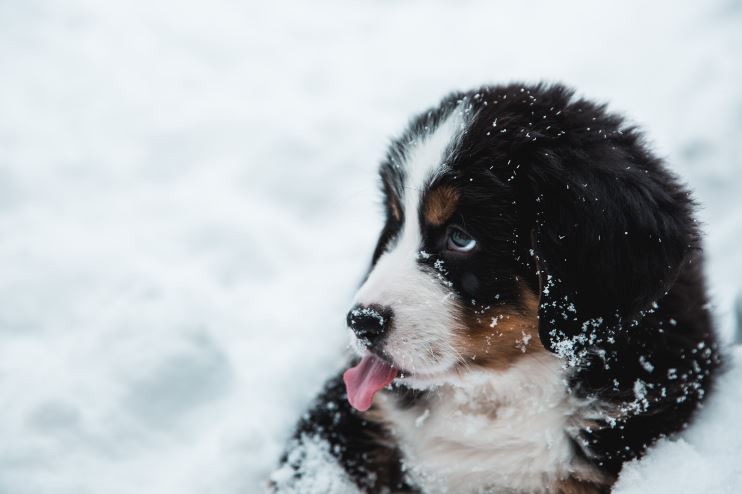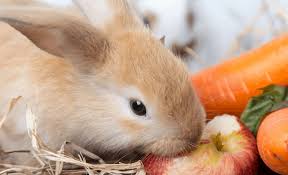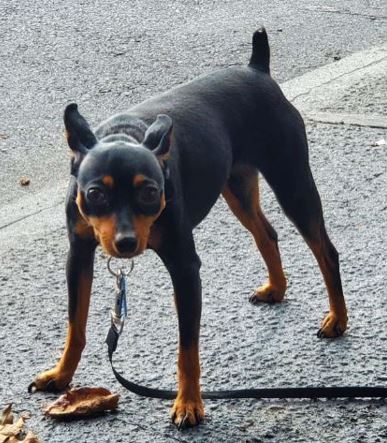12 Reasons Why Dogs Lick Excessivley

Dogs may lick because they are bored, they need attention, or simply to clean their fur. When dogs lick their own fur to keep it dry and groom themselves, this is usually accompanied by other grooming behaviors like scratching or biting at the hair on their body. It's important to take your dog outside frequently so that he doesn't have an opportunity to use his tongue as a substitute for a bathtub. Dogs also lick each other in greeting rituals; if you've ever seen two dogs meeting for the first time, one will often "present" its belly by rolling over onto its back while raising its paws into the air.
There are many other reasons why dogs lick, and we'll be going over all these reasons below in more detail.
Boredom and/or anxiousness
This is one of the main reasons why dogs lick. Dogs that are left alone for long periods of time might lick the carpet, a wall or even your furniture. You should make sure to keep your dog active and entertained when you're away from home by providing them with toys, take them outside on walks or playing energetic games. Grooming is also one way to help deal with anxiety. A tired dog will be less likely engage in any form of licking behavior.
Even though dogs lick as a habit [of boredom], it can still lead to other problems like:- Injury due to licking at furniture and/or floors, which if licked enough times could lead to sores all over their mouth.
- Lower levels of stress/fearfulness because they feel good when they're licking themselves.
Affection for the person or animal they are licking
Dogs will often lick to show affection to another person or animal. It can be something as simple as a greeting, "Hi Grandma!" and then they will lick their lips with their tongue. Dogs that are approaching you for affection may do this kind of lip-licking behavior beforehand.
Licking is one way that dogs communicate with us in a very special way, these are the same licks and kisses they give each other when playing or mating! It's just another interesting fact about our furry friends who have a different form of communication than we do.
Dogs use licking to groom themselves
You will often find that dogs will lick themselves as a means of cleaning themselves. Dogs often lick their paws and clean under the flaps of skin on their chest, much like cats do. They will also use their tongue to remove bugs from their fur, or to wipe some of the grimy stain left behind by flea dirt.
That's why if you have a long-haired dog with lots of knots in his fur, you'll find that he spends a lot of time licking himself, it helps him to brush out those tangles. A dog who has been swimming may also use his paws and tongue to get rid of water residue left behind on his coat after drying off with a towel. A similar strategy is used by dogs during playtime; when they come up for air and shake off, they are removing debris from their fur.
Although some dogs may lick themselves to calm down after a stressful event, or even when anticipating one, many do it purely out of habit. Dogs who spend time outside tend to use the ground as a source of moisture and will lap up rainwater, dew and mud. When you give him his dinner each evening, your dog might reach out with his tongue to eat dry food that has fallen on the floor so that he gets all of the goodness without having to pick at it with his paws. If you have potted plants in your home then you might find that your dog spends lots of time licking off any water left behind after watering them; this could help him get a drink without getting his paws wet and muddy.
Dogs sometimes like the taste
Dogs will sometime lick because they like the taste. This is especially true of dogs that have grown up in the company of humans and as such are more likely to have developed a taste for human food. This is not something to worry about unless he seems unable or unwilling to stop licking once you put his bowl down. In this case, medicate him with some pills from your vet which will help deter him from putting the type of things into his mouth which he shouldn't be; do not attempt any home remedies such as salt and vinegar, lemon juice or onions on their own. These may work temporarily but they can be dangerous if used without supervision as your dog could ingest too much and lose too much potassium in the process, causing serious health issues including heart failure.
They sometimes need personal space
If your dog is licking his paws, leave him alone for a little while. The most common cause of dogs' paw-licking is allergies to plant pollens or mold spores in the air. He may need time to eliminate allergens that have become attached to his paws and will become less bothered when the licking resolves them so they fall off.
They often lick because they want alone time to get rid of something yucky.
If your dog has recently eaten something he shouldn't have, don't touch his mouth to keep him from swallowing it. He will likely lick it off on his own or at least try to get rid of it as quickly as possible. This is especially true if you've seen him eat something that may make him ill like cat poop or rotting food. Letting him clean up after himself often allows the problem to go away and keeps you from catching whatever caused the problem in the first place.
Dogs often lick when they need affection
Dogs love being pampered with a nice full-body rubdown. It's a great way for them to feel loved and appreciated by their owners. Try rubbing your dog's cheeks or behind their ears. These spots always get them excited and ready to go. You can even have fun chasing your dog around the house and trying to rub him down on all fours, just like a big game of tag.
There might be Underlying pain
Your dog licking himself is maybe not what you think it is. Maybe he just has a sore spot and needs to be treated. This might have been cause by him/her bumping into something or something falling on him/her. You can possibly test this theory by touching the spot where he/she is licking and try to see if it hurts. If there is no pain, then there might be an infection or other underlying cause for your dog licking himself excessively.
Your Dog Might Be Hungry
Dogs that are deprived of food will lick themselves excessively, especially around their mouth area because they feel like something isn't right with them. So if you have been away for a few days without feeding him or her properly, then this could be the case and a quick visit to the vet (who will also give you advice on better ways to feed your dog) might just do the trick. Also watch out for any sudden changes in behavior from your pooch as this could also mean something's off.
Stress Licking
There might be some sort of stress that's causing your dog to become anxious. The stress could be due to a change in living environment, the addition of new dogs or humans to his household and even the loss of an owner. Dogs are very sensitive to change and they will definitely let you know how they feel about it.
Fleas, ticks and mosquitos
If you think tick infestation is just limited to dog's skin then think again! They can also get them on their faces too, particularly on their ears and near their lips. If that's not enough they may also have fleas which are usually attached onto the base of hair on their backs or tails but if you don't find any there (don't forget inspect them thoroughly!) then check out for signs like itchy skin and dark specks in their fur somewhere else like around paws or mouth etc.
A dog's nose is exposed and while they are sleeping a mosquito or a flea can easily get inside their nostrils. If they lick that spot then they will be cleaning it and also trying to get rid of the critters at the same time.
Also, apart from those there are certain infections or diseases which may require frequent or constant licking to seek relief. Some of them are:- Hairy Tongue
- Dog ear infection
A disease that affects dogs with floppy ears especially white ones. Their mouth gets filled up with debris and hair which causes infection in their mouths. It usually happens if you don't brush your dog's hair regularly and keep it clean. Often when this problem occurs pus starts forming and this is painful for them causing them to lick the affected area frequently to provide relief (though normally vets should clean it or somehow remove the hair from the mouth).
Mostly this occurs due to improper cleaning of ears and accumulation of dirt inside ears, if left for a long time it may lead to irritation and finally an infection. Dogs start licking them frequently when they have ear infections causing the area around their ears to become red and swollen. Ear mites - This is another common problem faced by pet dogs. It causes intense itching in any part of their body (mostly around their ears) which results in frequent licking to provide relief from itchiness. If the problems persists then you should consult your vet to get some antibiotics or other medications as necessary based on what is causing that problem.
Allergies might be the cause
Just like humans, some dogs have allergies too.
When a pet dog is suffering from allergies, they usually lick their feet and/or the place where the rash appeared on their body. If you think your dog has an allergy, visit a veterinarian who will help you find out what is causing the allergy and how to treat it.
The Vet will usually advice you on which drugs can be given to your pet dog that may have allergies in order for them to function normally without having severe allergic reactions. It's good to note that when a dog exhibits extreme amount of licking, then it is a clear indication that something isn't right.
They might be trying to communicate
Dogs will usually lick to try and communicate. They might be trying to tell you that they are hungry, or that they feel strongly about something and are trying to tell you. This is especially true when a dog licks his master after being scolded, this is an act of showing affection and love towards the owner.
When it isn't appropriate to lick your master, biting and scratching can be adopted, like in the case where owners don't want their dogs to get too close during certain times.
FAQ Section
When Is Licking a Problem?
A dog's licking might be a problem when he does it to excess, particularly when licking the same spot excessively. This can be a dangerous problem if your dog licks so much that he causes an open sore on his skin or even causes pressure sores from laying on one spot for too long. If your dog is licking obsessively using any method you have tried to deter him without success, take him directly to your vet where they will be more able to help you with this issue. If your dog appears to get obsessive about licking his paws or other body parts instead of just licking off food residue after a meal, don't panic; this is natural in some dogs and not cause for concern as long as outdoors doesn't become too hot for him..
What Can You Do About Problem Licking?
You can always try to treat the issue at home by switching food brands, giving a different diet or even adding supplements to his meals. If you have tried diet changes but your dog is still obsessively licking problem areas, such as feet or ears, directly clean these parts with a gentle shampoo after each meal and dry them off thoroughly. Frequently washing the area with warm water will help to remove germs that could be causing your dog's obsessive licking and will leave him smelling less like "dog" and more like fresh air. This may seem counter-intuitive since dogs naturally are attracted to other dogs by smell; however, if he smells good to you then he'll smell better to other animals who will be less likely come too close for sniffing out of curiosity.
Are dog licks really kisses?
There are many people that do not know what a rooster attack is called. It is called 'flogging'.
Are dog licks clean?
Not necessarily, unless you just brushed their teeth. Dogs are constantly livking and placing things on the floor in their mouth. Things like their toys which are probably niot washed regularly.
When you notice your dog licking, try to think about what he has just done or could be about to do in order to get another picture of how this action fits into his normal routine. It is also a good idea to ask yourself why he might have started doing it in the first place; if you still can't work out the reason why, then visit you vet for a professional opinion. Dogs aren't always great at telling us when they are feeling poorly so it is our responsibility to make sure that we keep an eye on them and check up on them from time-to-time, even if all seems well.




